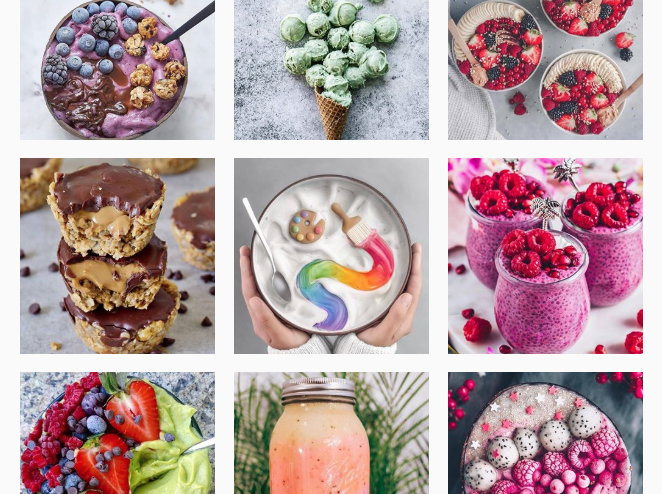Instagram Isn’t Real
So stop comparing yourself to the people you follow

According to research conducted by Professor Andrew Przybylski of the Oxford Internet Institute, Instagram makes us feel 11% worse about ourselves than any other social media platform.
Why is that?
Instagram is a platform based solely around visual content and photography. And it’s not any old photos. When you upload photos to Facebook, you might upload a whole album of your holiday snaps. On Instagram you would choose one or two favourites of the trip. Before you post a photo you’re prompted to crop, adjust, and filter it. That leaves us with heavily curated feeds of perfect-looking photos, which claims to be representative of someone’s life.
It’s one thing when it’s your friend’s profile. You see their Instagram highlight reel, but you also know about the other sides of their life; the parts that never make it to Instagram.
But when it’s someone you’ve never met — a so-called ‘influencer’ — it’s a different story. It’s easy to get too caught up in what they choose to put online, and believe it truly represents their perfect life. And that makes us start to question why our own life is not like that.
They have the perfect body, the perfect boyfriend, perfect bowls of breakfast smoothie, the perfect group of friends, perfectly smooth skin, and 100,000 followers. Why don’t I?
“Social media, especially how I used it, isn’t real. It’s contrived images and edited clips ranked against each other. It’s a system based on social approval, likes, validation, in views, success in followers. It’s perfectly orchestrated self-absorbed judgment.”
— Essena O’Neill, ex-Instagram influencer
This is further exacerbated now because brands and marketers have caught on to the growth of Instagram influencers. These are people who are looked up to, idolised, trusted. That makes them perfect as a platform to advertise your products on. Every other photo on Instagram is now preceded with #AD or #gifted or #paidpromotion. And whilst I have no problem with people making a living of social media (you do you), it does add to the disingenuous of the platform.
Instagram is not real life. You can never know what’s going on behind closed doors, and certainly not behind the screen of a phone.
This has been highlighted with several tragic events.
One example is the TV show Love Island, whose participants are pretty much guaranteed instant social media fame once they’re accepted onto the show. And that fame isn’t always positive, with hateful comments abounding. Two previous participants of Love Island have committed suicide, Sophie Gradon (2016 participant) and Mike Thalassitis (2018 participant). Coming out of the villa to millions of followers watching and judging your every move has been cited as part of the reason for these suicides.
“People are going on these shows who aren’t strong enough to cope. They come out to millions of social media followers, trolls, hangers-on. Some are national hate figures.”
— Emma Kenny, psychologist
A second example comes from the world of #instatravel. Trolltunga is a famous Instagrammable spot in Norway. The typical photo taken at this spot is of a lone traveller standing on the edge of the ‘troll’s tongue’ and looking out wistfully over the Norweigan mountains. In reality, of course, that lone traveller has a queue of hundreds behind them waiting for their shot. It’s also fairly precarious. In 2015 an Australian student fell to her death whilst posing for a photo on Trolltunga.

The backlash: the growth of ‘real’ influencers
Are the days of artfully-arranged avocado toast and perfectly posed booty photos coming to an end?
It would appear I’m not the only one feeling this way. A new generation of Instagram users are fighting back against this idea of the carefully curated highlight reel on Instagram. They see that these photos are manufactured, and they aren’t interested.
We’re starting to see profiles gaining prominence which are posting raw, messy, unfiltered photos of day-to-day life, not a filter in sight. These are the new influencers of Instagram, people like Emma Chamberlain, Jazzy Anne, Reese Blutstein,and Joanna Ceddia. They’re all trying to show themselves on Instagram as they are, instead of creating a separate online persona.
Of course, the danger is that these ‘natural’ influencers simply become the next set of idols, just with a different aesthetic.

Stop comparing yourself to people on Instagram
I write this post as an Instagram user myself. I know that the images I see, on the most part, aren’t making me happier or more fulfilled in my own life. If anything, they’re probably fueling anxiety and a sense that my own life is less than it should be. And yet, each evening I find myself mindlessly scrolling through photo after photo.
So here’s what I plan to do:
- Regularly take time off social media
- Unfollow accounts which aren’t motivating me or making me happy
- Stop living for the photos, and enjoy the moment — you don’t need to photograph every sunset
- Regularly check how long I’m spending on Instagram using the ‘Your Activity’ dashboard, and consciously try to reduce this.
